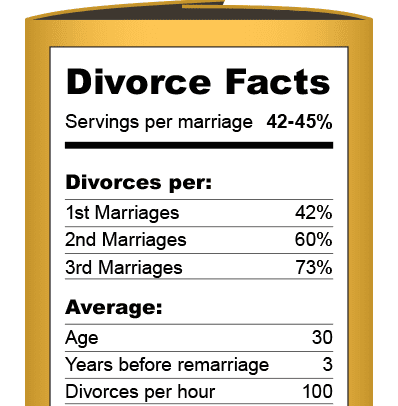Raboyseyee and Ladies,
This past Tuesday evening we had the great pleasure of attending the wedding of Sarala Jeger, she the beautiful and most incredible daughter of decades-long friends Ronie and Meyer Jeger, they of Kew Gardens Hills. Fifty plus years is many decades for sure. Sarala was escorted down to the chuppah where she married Dovid Braunschweig, he the accomplished son of the lovely Michelle and Dr. Yitzchak Braunschweig, they of Woodmere, New York. It was an absolute delight to participate in this great simcha; the energy and simcha were palpable. Mazel tov to Sarala’s siblings and their families, to aunt Rochelle and uncle Moishe Jeger and to the entire extended Jeger, Zimmer, Braunschweig and Parnes families. May they be zoche to build a beautiful home together.
And to a simcha we could not make it to this past Sunday, a big mazel tov to Tess Simon, she the beautiful daughter of Gavi and Barbara Simon upon her engagement to Noah Nordlicht, he the son of Dalia and Meyer Nordlicht. We have known Tess since birth and our daughters grew up together. May Tess and Noah merit to spend many happy and healthy decades tighter in marital bliss. Mazel tov to both extended parties.
———————————————————————————————————————
Virginity, Wife Swapping, Divorce, 2nd Marriages, & More
OMG: are these topics and specifically these headline words found in our parsha? A few in the parsha itself, others introduced by esteemed exegetes. There are more! Four pisukim in this week’s parsha have given rise to one of the biggest industries the RBSO ever created -aside from the kosher food industry of course. We speak of a multibillion-dollar industry, the market for divorce and everything around it. According to the heylige Internet -and who knows more or better- divorce is a $28 billion a year industry that affects 50 percent of the people involved in marriage. The bottom line: two of the four pisukim provide consistent ongoing business for divorce lawyers, mediators, arbitrators, private detectives, forensic accountants, rabbinical and secular courts, social workers, therapists, psychologists, psychiatrists, the prescription drug industry, and oh so much more.
Every year as Parshas Ki Saytzei approaches, a few readers reach out and ask if the heylige Ois will be covering the curious case of the battlefield soldier, the one granted permission-by the RBSO Himself- to shoot his gun, if you chap, with a beautiful captive shiksa. And if ever there was a parsha you didn’t want to miss hearing, reading, checking out Rashi and other commentaries – efsher over and again- it’s this week’s heylige Parsha of Ki Saytzei which contains the most, and efsher also the most stimulating of the 613 mitzvis given to us by the RBSO. With 74 just in this parsha alone, it easily outranks any other, and it would take many weeks and more pages to properly cover its contents. So happens that delving is taka one of the rewards the RBSO allows soldiers in battle for their dedication and hard work, if you chap, ober chap nisht. We have previously covered this topic – perhaps more than once. Check out the archives at www.Oisvorfer.com for more. As to our topic of the week, entire tractates of the heylige Gemora -several of them- are dedicated to marriage, divorce and related subtopics.
In addition to the soldier and his permitted sex-capade, our parsha also lays out, an eye-opening assortment of rules related to ethical warfare, family life, burial of the deceased, property laws, the humane treatment of animals, fair labor practices, and proper economic transactions. Specifically, you’ll read about real live war booty, Pi Shinayim (the rights of the first born), the unusual way we are to deal with the ben soreir umoirer (the ‘wayward and rebellious son) who is seemingly much worse than the average oisvorf, and who is put to death (though our sages argue this never really happened in real life), followed by the ethical treatment of the dead bodies. Other mitzvis include our responsibility towards the property of others, men’s and women’s clothing (cross dressing verboten), guard rails, mixed agriculture, tzitzis, issues of marriage and adultery, slavery, sexual propriety, prostitution (now also verboten), interest, vows, workers’ rights, divorce, kidnapping, consideration for the orphan and the widow, support for the poor, Levirate marriage, the penalty for embarrassing another, and honest weights and measures. OMG!
And since the soldier is granted special permission to shoot, if you chap, we’ll also learn that there are specific rules, also in our parsha, regarding seminal emissions (the soldier becomes tomay and must leave the camp) and believe it or not, soldiers are even instructed (23:10-15) on where they may perform their other bodily functions (also outside the camp).
The first bottom line for the week: Ki Saytzei is a smorgasbord mamish of various topics and some unusual mitzvis; pick one or more that pique your curiosity and delve into them. And let’s get real: jews love the shmorg. The parsha ends with the famous mitzvah of not forgetting -in fact remembering- what Amolake -those terrible people- did to the Yiddin when they left Mitzrayim. Shoin, lommer unfangin (let us begin).
This past Monday -on Labor Day mamish- the Ois was sitting poolside with a chaver who happens to be remarried (as is his current eishes chayil). And, as men will often do when outside the earshot of their wives- they will discuss their marriages, divorce(s), and related topics. Though we didn’t specifically discuss the topic or the possibility of remarrying one’s ex-wife, it so happens that our parsha does, and let’s spend a few paragraphs going over what the heylige Toirah has to say about this particular topic and mitzvah. Ober ershtens (but firstly) a shtikel primer on divorce for the first time.
Believe it or not, most of what we know about divorce -at least back in Toirah times- comes from our parsha (24:1–4) -mamish but four pisukim. Posik #4 prohibits a man from remarrying his ex-wife after she has been married to another man. Aside from everything else, efsher you’re wondering azoy: who in his right mind- after going through a disruptive divorce, would want to remarry the ex-spouse? Is remarrying one’s ex-wife ever a good idea? A mitzvah? May one -should he so desire for whatever reason- remarry his ex? Anytime? So happens that it is a mitzvah -mamish- to remarry the ex but not always. It’s mitzvah to remarry her so long as she didn’t marry another man before coming back into husband number 1’s life. Thereafter, she’s forbidden to husband #1. See below for the koihen exclusion. Ober, let’s get real: Do you know anyone -even one person mamish- that remarried his ex-wife? Who does that? Lest you think such a case never happened and that there was no need at all for the RBSO to reveal this topic and relevant rules, believe it or not, the Ois can tell you first hand that at least one such marriage took place and the Ois knows the parties personally. Back in the early 1990s the Ois met a gentleman who told me that he had six children. Three each from his first and second wives. Then he added these words: “both wives were the same women, I remarried my ex.” Say it’s not so, but so it was!

Is remarrying the ex-spouse similar in nature to the laws of the ben soirer umoirer and two other commandments which our sages determined never happened and never will? Was that gentleman the only one? Ver veyst. More on remarrying the ex-spouse soon, but let us spend a minute on pisukim 1 and 2 before jumping ahead to remarrying the ex-spouse. Let’s quickly review what the heylige Toirah tells us befeirush (in the text before our sages further parsed them.
- A divorce is initiated by the man; the woman is not depicted as having a say in the matter. Ironically, in our times and according to informed sources (again the internet) in hyntige tzeytin (in today’s times) up to 80% of divorces are initiated by women. My, how things have changed.
- The man enacts the divorce by giving the woman a “bill of divorcement” (סֵפֶר כְּרִיתֻת). As an aside, that is the only bill he gives. During the process, and seemingly forever thereafter, the man is on the receiving end of most -if not all- other bills.
- The heylige Toirah informs us of the motivations for the two divorces in our pisukim, which are described in two different ways. Two divorces? Indeed; same woman twice divorced by two different men. Check out posik #3.
What do we know with certainty? In the first instance, the man divorces his wife because “she fails to please him -because he finds something obnoxious (עֶרְוַת דָּבָר), -whatever that means but literally “the nakedness of something” or “a matter of nakedness” about her.” Specifically, what those words mean is hotly debated.
The second man divorces her because he “rejects” or “dislikes” her. She is a sinuah (וּשְׂנֵאָהּ). He has buyer’s remorse! In describing the motivations for the divorces, the text offers some insight into the circumstances under which a man could divorce his wife. But the descriptions are not entirely clear and have been subject to different interpretations. With that background, let us read the four pisukim innaveynig and says the heylige Toirah (Devorim 24:1-4), azoy:
| 1 When a man takes a wife and is intimate with her, and it happens that she does not find favor in his eyes because he discovers in her an unseemly [moral] matter, and he writes for her a bill of divorce and places it into her hand, and sends her away from his house, | אכִּֽי־יִקַּ֥ח אִ֛ישׁ אִשָּׁ֖ה וּבְעָלָ֑הּ וְהָיָ֞ה אִם־לֹ֧א תִמְצָא־חֵ֣ן בְּעֵינָ֗יו כִּי־מָ֤צָא בָהּ֙ עֶרְוַ֣ת דָּבָ֔ר וְכָ֨תַב לָ֜הּ סֵ֤פֶר כְּרִיתֻת֙ וְנָתַ֣ן בְּיָדָ֔הּ וְשִׁלְּחָ֖הּ מִבֵּיתֽוֹ: | |
| 2 and she leaves his house and goes and marries another man, | בוְיָֽצְאָ֖ה מִבֵּית֑וֹ וְהָֽלְכָ֖ה וְהָֽיְתָ֥ה לְאִֽישׁ־אַחֵֽר: | |
| 3 if the latter husband hates her and writes her a bill of divorce, and places it into her hand and sends her away from his house, or if the latter husband who took her as a wife, dies | גוּשְׂנֵאָהּ֘ הָאִ֣ישׁ הָֽאַחֲרוֹן֒ וְכָ֨תַב לָ֜הּ סֵ֤פֶר כְּרִיתֻת֙ וְנָתַ֣ן בְּיָדָ֔הּ וְשִׁלְּחָ֖הּ מִבֵּית֑וֹ א֣וֹ כִ֤י יָמוּת֙ הָאִ֣ישׁ הָאַֽחֲר֔וֹן אֲשֶׁר־לְקָחָ֥הּ ל֖וֹ לְאִשָּֽׁה: | |
| 4 her first husband, who had sent her away, may not take her again to be his wife, since she was defiled [to him], for that is an abomination before the Lord, and you shall not bring sin to the land the Lord, your God, gives you for an inheritance. | דלֹֽא־יוּכַ֣ל בַּעְלָ֣הּ הָֽרִאשׁ֣וֹן אֲשֶׁר־שִׁ֠לְּחָ֠הּ לָשׁ֨וּב לְקַחְתָּ֜הּ לִֽהְי֧וֹת ל֣וֹ לְאִשָּׁ֗ה אַֽחֲרֵי֙ אֲשֶׁ֣ר הֻטַּמָּ֔אָה כִּי־תֽוֹעֵבָ֥ה הִ֖וא לִפְנֵ֣י יְהֹוָ֑ה וְלֹ֤א תַֽחֲטִיא֙ אֶת־הָאָ֔רֶץ אֲשֶׁר֙ יְהֹוָ֣ה אֱלֹהֶ֔יךָ נֹתֵ֥ן לְךָ֖ נַֽחֲלָֽה: |

While the heylige Toirah tells us that a man may divorce his wife for any reason, the heylige Mishneh (m. Gittin 9:10) records a machloikes (dispute) on this point, based on the motivation given in posik 1: אִם־לֹא תִמְצָא־חֵן בְּעֵינָיו כִּי־מָצָא בָהּ עֶרְוַת דָּבָר, “She fails to please him because he finds something obnoxious (ervas davar) about her.” What’s the dispute? Beis Shammai says the issue was erva (ערוה) and suggests that a man may divorce his wife only if she has committed a sexual transgression, apparently adultery. (Others -mostly friends- suggest that the sexual transgression the wife committed, was the withholding of sexual favors from her husband, ober that for another day.) Beis Shammai focuses on the term ervah, which literally means “nakedness.” In rabbinic parlance, ervah refers to a forbidden sexual relationship, a usage that derives from the biblical expression לְגַלּוֹת עֶרְוָה, “to uncover nakedness,” which describes sexual transgressions we read about back in Vayikro 18 and 20.
Ober his sparring partner, Beis Hillel says azoy: also relying on the same phrase “because he finds ervas davar about her,” he says the word davar means “thing” or “something.” In other words: anything!
בֵּית שַׁמַּאי אוֹמְרִים: לֹא יְגָרֵשׁ אָדָם אֶת אִשְׁתּוֹ אֶלָּא אִם כֵּן מָצָא בָהּ דְּבַר עֶרְוָה, שֶׁנֶּאֱמַר, כִּי מָצָא בָהּ עֶרְוַת דָּב
Says Beis Hillel azoy: Even if she burns his food, as it says: “Because he finds ervas davar about her.” The term davar suggests to Beis Hillel that a man must have some grounds to divorce his wife, but they can presumably be any grounds at all—even something as minor as burning the food. וּבֵית הִלֵּל אוֹמְרִים, אֲפִלּוּ הִקְדִּיחָה תַבְשִׁילוֹ, שֶׁנֶּאֱמַר, כִּי מָצָא בָהּ עֶרְוַת דָּבָר.
And let us not forget about Rebbe Akiva (he with most lenient position on divorce) who says that a man can get divorced just because he so feels like doing. He’s lost interest. Shoin!
רַבִּי עֲקִיבָא אוֹמֵר: אֲפִלּוּ מָצָא אַחֶרֶת נָאָה הֵימֶנָּה, שֶׁנֶּאֱמַר, וְהָיָה אִם לֹא תִמְצָא חֵן בְּעֵינָיו:
Rebbe Akiva specifically gives this example: Even if he finds another more beautiful than she, he may leave her as it says: “She fails to please him.” In other words, the husband does not need to have any specific complaint about his wife; he can divorce her merely because he is no longer interested in her or because he finds someone more attractive. Not a very tall order. Rebbe Akiva bases his interpretation on the first part of the verse, the phrase אִם לֹא תִמְצָא חֵן בְּעֵינָיו, “she fails to please him.” Literally, “she does not find favor/beauty in his eyes,” a purely subjective criterion. And for that reason alone, raboyseyee, Rebbe Akiva was so beloved by all men. As an aside, Rebbe Akiva ignores the second phrase, “because he finds something obnoxious about her.” Mistama (likely), he assumes that this phrase is simply meant as one illustrative example of why a man might divorce his wife, not a prescriptive rule limiting when divorce is permitted.
The next bottom line: as you can see, exactly what the meaning of the term ervas davar is, remains somewhat ambiguous, but one thing is zicher (certain): the heylige Toirah does not mince words when telling us why the second husband is leaving his wife. The first man finds “something obnoxious” (עֶרְוַת דָּבָר) about her; the second “rejects” or dislikes her (שְׂנֵאָהּ). Poshit giredt (in plain English): the second husband hates her and fartig. Happens every day. Fartig! Doesn’t the word ‘sinua mean hate? Didn’t we -back in Bereishis 29:31 and 33- learn that Leah was “rejected” or “disliked” (שְׂנוּאָה) by Yaakov? Yes we did! And in our parsha this week, don’t we come across this word? Yes we do! In 21:15-17 we read this: “if a man loves one of his wives and rejects or dislikes another -she is the sinua- and the disfavored wife bears his firstborn son, he cannot give the preferred wife’s son the greater portion of his inheritance; it must go to the firstborn. Also in our parsha, (22:13–19) we read the case in which a man marries a woman and decides that he dislikes her and falsely accuses her of not being a virgin. The bottom line: the word sinua means some form of hate towards a woman, perceived or real. Why live with a woman one hates?
Ok, let’s now review what we know from the text. When a man gets married and has had sexual relations with his wife (this part seemingly very important to what happens next), and he discovers that he no longer wants to be married to her, he writes her a get (bill of divorce) and fartig. They go their separate ways. Next: She gets remarried. Ober in posik three we learn that the second husband hates her -strong wording- and he too sends her away; she gets her walking papers – the get. Alternatively, the heylige Toirah does present a second scenario where the second husband may or may not hate his wife but he drops dead on her. What next? Posik four tells us that the first husband may not remarry her since she was “defiled” (to him). Such a marriage -were it to happen- the Toirah tells us, is an abomination to the RBSO. As an aside, abomination is a strong word we find when the heylige Toirah -back in Parshas Kedoishim- describes incestual and other relationships that are strictly verboten. The explanation offered by the text is that remarriage to husband #1 after a second marriage is abhorrent to the RBSO and brings sin on the land.
כִּי תוֹעֵבָה הִוא לִפְנֵי יְ-הוָה וְלֹא תַחֲטִיא אֶת הָאָרֶץ אֲשֶׁר יְ-הוָה אֱלֹהֶיךָ נֹתֵן לְך נַחֲלָה׃
ָWhy the RBSO was so adamant, we are not told in the text. Why does the second marriage contaminate the woman, such that she should be prohibited to her first husband? The RBSO did not tell us but lets us read what a few exegetes had to say. So happens that this very question is addressed by both the RambaN and the Sforno. Says the RambaN that the prohibition is designed to prevent a sort of legalized wife-swapping. Mamish azoy? Let’s read his words:
וטעם הלאו הזה כדי שלא יחליפו נשותיהן זה לזה יכתוב לה גט בערב ובבוקר היא שבה אליו וזה טעם ולא תחטיא את הארץ כי זה סבה לחטאים גדולים
And in English: The reason for this prohibition is so that [men] do not exchange their wives between them, such that [a man] writes [his wife] a bill of divorce (get) in the evening, and she returns to him in the morning. That is the meaning of “you must not bring sin upon the land”: for this is a cause of great sins.
And the Sforno? כי תועבה היא כי זה דרך מבוא לנאוף שיגרש איש את אשתו לבקשת הנואף שיקחנה לאיזה זמן וישוב בעלה הראשון לקחתה:
 For that would be abhorrent: For it is a gateway to adultery, in which one man divorces his wife at the request of the adulterer so that [the latter] can take her for some amount of time, after which her first husband takes her back. The Seforno said what? In plain English: the RBSO knew that certain husbands (and certain wives) -mistama bored with the usual Netflix or other offering- might be attracted to the idea of wife swapping, ober what to do when all parties to the potential swap are married? And the solution? Get divorced for a few hours and shoin! Better than the show: real live action! Got all that? Several commentators explain that the reason the Toirah forbids this is to prevent lewdness. If a woman could marry one man, then leave him for a second man and then come back to the first, it would enable much immorality. You think? In extreme case, if two couples would desire each other’s spouses, they could simply divorce for a day, marry the second spouse, then divorce each other and return to their original marriages – all without technically breaking Toirah law. Shoin to prevent this scenario, the heylige Toirah put the kibosh on remarrying one’s divorcee (if she married in the interim). Just in case you’re scratching your heads -you are not alone- figuring this all out, let’s chazir (review): If a couple gets divorced, they are allowed to get remarried (assuming that the husband is not a kohein, since a kohein may not ever marry a divorcee, including his own). Of course, in our times, the Ois has seen rabbis work around this issue as well, that for another day. (As well, the heylige Gemora (Yevomis 11b) acknowledges that at times illegal marriages do take place; that too for another time.) That all notwithstanding, if a woman married someone else in the interim, she may not remarry her previous husband. Seemingly, the purpose of this mitzvah is to serve as a barrier to immorality. Limoshol (by way of example only), let’s say that Yenti is married to Yoili and Ruchi is married to Shloime. These couples get divorced so that Yenti can marry -or be with- Shloime and Ruchi can marry -or be with Yoili. After a short time (or longer), or even after a one-night stand, the new couples too get divorced and remarry their original spouses. In other words: instead of a marriage of convenience, they arrange divorces of convenience in order for them to somehow legally spend time with other spouses. Loophole? Another hole? Ut azoy (that’s how it’s done); the kosher legal wife swap (for sexual purposes only) and seemingly kosher: all parties were divorced before coming together -if you chap. Ober, not so fast because the RBSO of course understood that men -many- and some women are chazerim mamish and in our parsha outlawed this practice by prohibiting one from remarrying his ex-wife in such a case. Once Yenti leaves Yoili to be with Shloime, there’s no going or coming back. Got that?
For that would be abhorrent: For it is a gateway to adultery, in which one man divorces his wife at the request of the adulterer so that [the latter] can take her for some amount of time, after which her first husband takes her back. The Seforno said what? In plain English: the RBSO knew that certain husbands (and certain wives) -mistama bored with the usual Netflix or other offering- might be attracted to the idea of wife swapping, ober what to do when all parties to the potential swap are married? And the solution? Get divorced for a few hours and shoin! Better than the show: real live action! Got all that? Several commentators explain that the reason the Toirah forbids this is to prevent lewdness. If a woman could marry one man, then leave him for a second man and then come back to the first, it would enable much immorality. You think? In extreme case, if two couples would desire each other’s spouses, they could simply divorce for a day, marry the second spouse, then divorce each other and return to their original marriages – all without technically breaking Toirah law. Shoin to prevent this scenario, the heylige Toirah put the kibosh on remarrying one’s divorcee (if she married in the interim). Just in case you’re scratching your heads -you are not alone- figuring this all out, let’s chazir (review): If a couple gets divorced, they are allowed to get remarried (assuming that the husband is not a kohein, since a kohein may not ever marry a divorcee, including his own). Of course, in our times, the Ois has seen rabbis work around this issue as well, that for another day. (As well, the heylige Gemora (Yevomis 11b) acknowledges that at times illegal marriages do take place; that too for another time.) That all notwithstanding, if a woman married someone else in the interim, she may not remarry her previous husband. Seemingly, the purpose of this mitzvah is to serve as a barrier to immorality. Limoshol (by way of example only), let’s say that Yenti is married to Yoili and Ruchi is married to Shloime. These couples get divorced so that Yenti can marry -or be with- Shloime and Ruchi can marry -or be with Yoili. After a short time (or longer), or even after a one-night stand, the new couples too get divorced and remarry their original spouses. In other words: instead of a marriage of convenience, they arrange divorces of convenience in order for them to somehow legally spend time with other spouses. Loophole? Another hole? Ut azoy (that’s how it’s done); the kosher legal wife swap (for sexual purposes only) and seemingly kosher: all parties were divorced before coming together -if you chap. Ober, not so fast because the RBSO of course understood that men -many- and some women are chazerim mamish and in our parsha outlawed this practice by prohibiting one from remarrying his ex-wife in such a case. Once Yenti leaves Yoili to be with Shloime, there’s no going or coming back. Got that?

Ober shtelt zich di shaylo (the question arises) azoy: The above interpretation by the Seforno fails to account for several details of the Toirah’s text. The posik told us that the first man divorces his wife because he “finds something obnoxious (עֶרְוַת דָּבָר) about her” and that the second divorces her because he “rejects” or dislikes her (שְׂנֵאָהּ). These descriptions do not conflate with the idea that they prearranged the whole affair. Who said they were thinking about a wife swap? Moreover, the text explicitly states that the law applies not only if the second man divorces the woman but also if he dies. Why taka does the ex-wife become prohibited to husband #1, especially so if husband #2 died? And the answer is azoy: it’s what the RBSO commanded and case closed.
But wait: there is some good news. While the language of the verse primarily addresses the husband, the mitzvah applies to some degree to both partners–after all, he can’t do it alone! Well…What’s the good news? This mitzvah only applies if the wife married someone else. If only the husband had been married in the interim, it’s another story. He could marry wife #1 and divorce her. He can then marry wife #2 and divorce her, and then go back and marry wife #3. This is because, under Toirah law, a man might have two wives. Why don’t men taka have two wives? Poshit: they don’t want to! A woman can never have two husbands. Wait! More good news: check out the Chizkuni on our parsha where he says this:
והלכה והיתה לאיש אחר, (“and she goes and has become someone else’s wife”). The wording implies that even if she had only become betrothed to another man and had not yet consummated this bond, her former husband must on no account take her back as his wife. The sages derive this from the passive: והיתה, “she has become some other man’s.” ober, if, after having been divorced, this woman had engaged in sexual relationships with another man without having made any kind of commitment to her partner, even if she had been paid as a harlot for such a relationship, her former husband is allowed to remarry her. If that woman had been divorced because she had been guilty of adultery, her husband cannot remarry her even if she had not remarried or had not been intimate with any other man. The critical word is the word הוטמאה in verse 4, “she had been defiled.” This means that she had absorbed semen from her partner in sin. Want more information? Check out the heylige Gemora (Yevomis 11b-12a, the Shulchan Aruch Even Ha’Ezer 10. As well, you can find this mitzvah (#356 of the 365 negative mitzvis) in the Rambam’s Sefer HaMitzvis.

The final bottom lines: When it comes to love and sex, as with most other areas of human behavior, our sages and rabbis were realists. Crazy as the remarrying the ex-wife scenario might read, it is kinderschpiel (child’s play) compared to some of the truly mind-bending hypotheticals that the sages of the heylige Gemora conjured up. When it came to sexual improprieties, their imaginations were vild (wild)!

Next: We have often seen in the heylige Gemora that the rabbis devote just as much attention to extremely unlikely possibilities as to real-world scenarios. And that raboyseyee, is what makes the Talmud “Talmudic.” Why taka you may be wondering, spend so much time analyzing situations that surely would never arise in real life? By way of example, how many people are going to remarry their ex-wives? How many will get divorced just to enjoy the momentary pleasures of the wife swap? Yet it is crucial to remember that, in rabbinic Judaism, the study of the law is not merely a pragmatic enterprise, like going to law school today, the study of heylige Toirah and Gemora is a religious act in itself. Gemora sharpens the mind, does it ever! The case studies presented -many hundreds are and many are taka but hypothetical- form a complete and logical system, learning the heylige Gemora is akin to mental calisthenics. And for those reasons raboyseyee, for the different ways the mind is forced to think about each potential scenario -specifically when it comes to sex and human nature- disproportionate contributions to every field of study -law, mathematics, the sciences, and so many others have been made by those who learn the heylige Gemora and its commentaries.
A gittin Shabbis-
The Heylige Oisvorfer Ruv
Yitz Grossman
